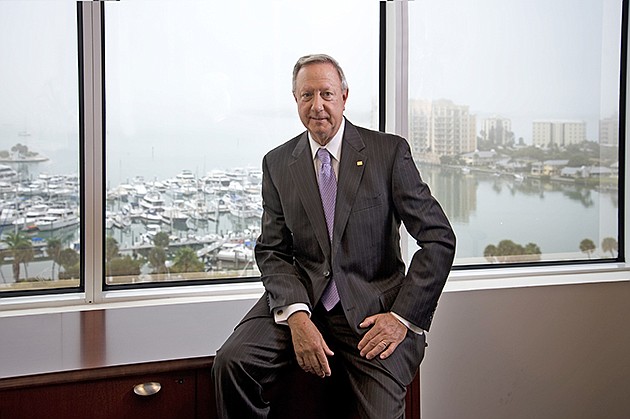- October 16, 2024
-
-
Loading

Loading

After a diverse banking career that started a week after he returned home from the Vietnam War in 1972, Dave Maraman obviously knows a lot of people in the industry.
Maraman bumped into one of those bankers recently at an industry conference in Chicago. The friend delivered a point-blank message for Maraman: “You suck at retirement.”
The pair laughed over the line, but Maraman admits there's certainly some truth to it. At 67, he's a regional president for BMO Harris Bank, where he oversees business banking for the lender's Florida and Arizona markets. He runs the unit, which includes about $500 million in commercial loans and about 30 offices from Orlando to Naples, from BMO Harris' downtown Sarasota office. There are another 61 offices in Phoenix and Tucson. He visits that region once a month.
Maraman, named to his post in 2010, doesn't plan to slow down, even after a career with many stops in multiple states. “This is what I want to do, and I can't imagine doing anything else,” Maraman says. “I feel like I have the best job in the bank. This is a phenomenal amount of fun.”
Maraman spent the first 17 years of his career on the regulation side, where he worked for the federal Office of the Comptroller of the Currency. He handled a variety of examinations there, with a concentration on banks with credit issues and criminal allegations. On the non-regulatory side, Maraman's career includes launching a bank in Indiana and running several other large institutions.
Maraman recently sat down with the Business Observer to chat about his lengthy banking career and some lessons he's learned. Here are excerpts of the conversation:
Make it anywhere: One of Maraman's biggest regrets is he never worked for a firm in the financial hub of New York City. “I really wanted to go into capital markets and be an investment banker,” he says. “I never got to do that.”
Help others: One of Maraman's favorite things about being in banking is the ability to provide capital that results in successful businesses ventures. “And they pay you to do this?” Maraman asks. “How could it get better than that?”
Go for it: A key lesson Maraman has learned in his career is to take the opportunities that come, even the risky ones. “This was never a pre-planned career, but when the window opens you should be ready to go through it,” says Maraman. “My whole philosophy is I would volunteer for anything. Sometimes I don't ever have the sense to know I could fail.”
Pay attention: Maraman says young bankers should seek to learn a lot from the ones who have been around. “Take as much advantage as possible from old bankers who have made mistakes,” Maraman says, “because banking does not invent many new mistakes, just replication and variations of a lot of older ones.”
Get flexible: The BMO Harris Bank market in Florida and Arizona is broad, says Maraman. But he tries to run it like a community bank, not a clogged bureaucracy. “If you can operate a large bank like a community bank, you can win,” says Maraman. “The banks that are nimble have a great opportunity.”
Know thy regulator
Veteran banker Dave Maraman's first job in the industry was on the regulation side, with the Office of the Comptroller of the Currency.
That was in 1972, when he was based in Indianapolis. Maraman, who now oversees business banking for BMO Bank in Florida, based in downtown Sarasota, stayed with the OCC until 1989. He specialized in problem banks and criminal action. Here are some of Maraman's do's and don'ts for bankers dealing with regulators.
Don't get emotionally attached to transactions. That gets banks into a lot of trouble, Maraman says.
Don't get greedy. “We all have a certain level of that,” he says. “It's not necessarily bad, but you have to channel it.”
Do be nice. “Regulators are a conduit to legislators,” Maraman says. “Your regulator can be a great source” of how the bank is doing. “Banks get upset with regulators, but all they do is identify the issues.”